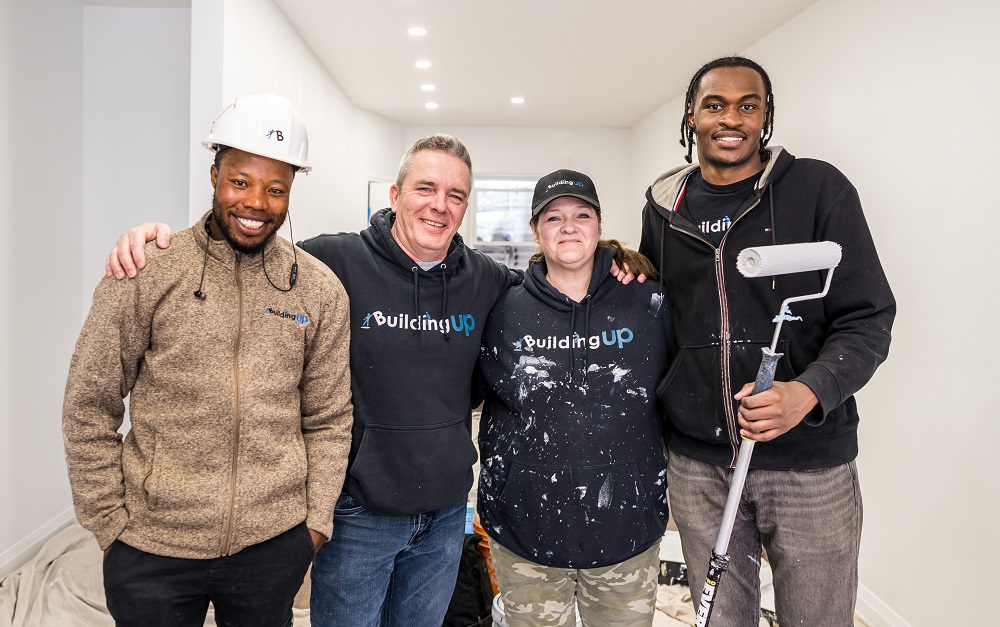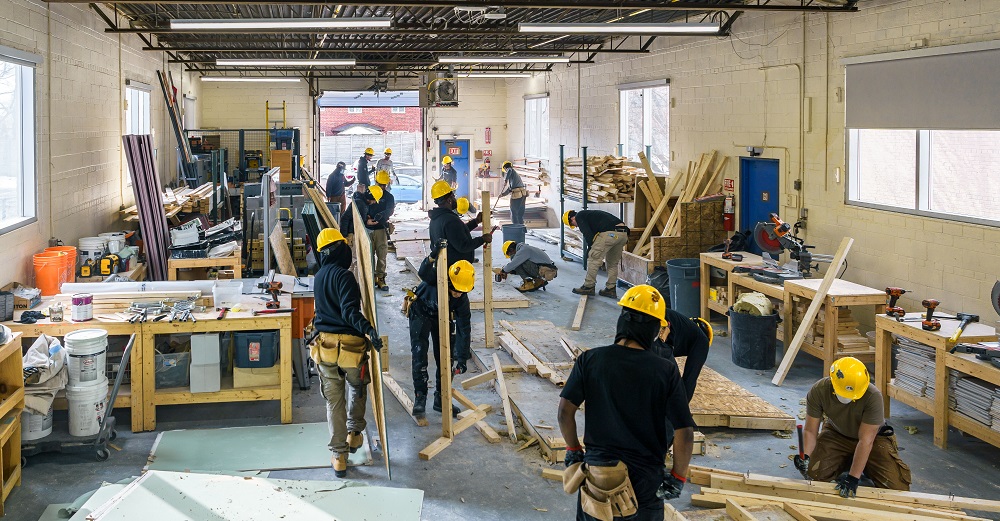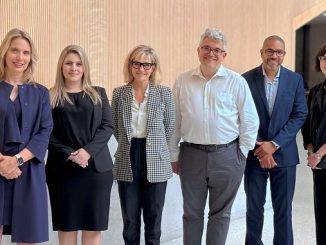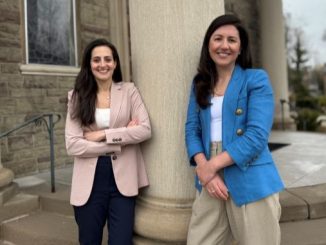Building Up is a non-profit social contractor that transforms lives through its intensive pre-apprenticeship training program focused on breaking the cycle of poverty for individuals facing employment barriers. By leveraging construction job sites and contracts aimed at enhancing community housing, the organization provides real-world training opportunities, fostering sustainable trade careers. We spoke with Marc Soberano, Executive Director & Founder of Building Up to find out more about what they do.

What is your business called and what does it do?
Building Up is a non-profit social contractor that provides an intensive, holistic pre-apprenticeship training program for individuals who face barriers to employment. We leverage our construction job sites and contracts – that focus on improving the liveability and environmental efficiency of community housing units – to provide real-world training opportunities for our participants, which in turn breaks the cycle of poverty through sustainable trade careers.
What made you want to do this work?
Business and the way it works unfortunately often leaves people aside and creates ‘have’ and ‘have nots’. We’re never going to turn the world away from capitalism so how do we use those same principles to bring people into a social enterprise? For example, every company has staff, but how can we be really intentional about creating a company that’s meant to support their staff more so than support the company?
I was really interested in that idea and was inspired by a group in Winnipeg that realized that there were a lot of energy efficiency upgrades that were meant to be done in their affordable housing buildings and those upgrades represented a massive opportunity to support not only the buildings, but the people living in them. While doing right by the environment, they were really doing right by people and making sure that they gave people an alternative to lives of crime and lives of poverty.
What problem did you want to solve with the business?
Building Up is meant to break the cycle of poverty for people – it’s a cycle of poverty because it’s hard to get out of it when you’re in it without a little bit of external support or some sort of intervention externally.
Our goal is to connect people to the lives they want to lead – the freedom, the flexibility – by giving them access to the skills and confidence and expertise they need to have a career in construction so that they can break the cycle of poverty and lead a better life.
The industry needs people. People want the jobs. We’re here to connect them.
Who are your clientele/demographics?
We work with people who are looking to get into the construction industry but have no idea how to do it and are often short on the prerequisites to get in – so that could be experience, high school diploma, permanent residence, the list goes on. Additionally, racial identity plays a significant role as well – 90% of people who go through building up are BIPOC. We have 2,000 people applying every year for a hundred spots – so there is massive demand. The idea that people don’t want to go into the trades is just wrong – they just don’t know how and they’re not feeling welcome without support. We help people get their driver’s license, we help people get housing, and get their life to a point where they can actually go and fill the jobs that need to be filled.
How does your business make money? How does it work?
About 75% of our budget comes from operating as a non-profit business. We go out and we do renovations and maintenance projects for homeowners and in many cases affordable housing providers – the same way any other contractor would – but instead of using that to make money we’re using that to create an opportunity to provide training and employment for people.
We’re not operating these jobs very profitably because the focus is less on maximizing the profit because if there was more money available, we would want to throw more trainees at it so they got more experience. So it’s not the goal of these jobs to clear a bunch of money. It’s not really realistic for them to be both profitable to the point that they can fund a training program and also training grounds themselves.
We do rely on money grants from the government and from foundations – however, we believe that we’re less reliant on that funding because we’re able to generate some of our own money as a social enterprise. But we do rely on some of that funding to fund the training program so we can help people get their driver’s license, so we can have an in-house therapist that works with our participants, so we can have our own training centre like a construction school that is free for people that they’re paid to go to – And that money needs to come from other sources.

Where in the city can we find your organization?
You can find us in our training centre in Etobicoke, but we’re doing work on job sites all across the GTA. We believe a big part of training is preparing people to be mobile. So we’ll take jobs across the city because people need to learn how to get places and do work because that’s what they’re going to need to do in construction.
What is the best question a prospective customer could ask a member of your organization when comparing services? Give the answer as well.
Wait, so you’re saying? That I can go to school, get paid to do it, you’ll help me find housing and get all the support I need and then you’ll help me find a job – in an industry that will pay me $40 an hour?
And then we’ll say yes.
What is the best part about what you do? What is the worst part?
The best part is having this sort of extended family of all these other families that have come through here and who: kind of have turned to building up when there was nowhere else to go and have continued to sort of give back to this community and become mentors for the next generation of building up participants and really just sort of help take it to another level and just let those people take the lead.
The worst part is that we feel the challenges of trying to run a business. Most companies focus really hard on trying to reduce turnover and our whole business model is to hire people that no one else will hire because they don’t have the experience and then once they become really productive to intentionally have a hundred per cent turnover.
What is your favourite joke about your own organization/industry?
Folks thinking that people don’t want to get into the trades. We 2,000 people signing up for one program that doesn’t do any marketing. The issue is that people don’t want to get in – it’s the barriers to entry.
Where can we follow you?
PAY IT FORWARD: What is another local business that you love?
***
Recently, Building Up was recognized by the global small business platform Xero. Xero Beautiful Business Fund recognizes businesses that go beyond financial success to create a positive impact in their communities. This award celebrates the spirit of entrepreneurship and inspires others to strive for excellence. If you are a business owner, you could be the next winner of the Xero Beautiful Business Fund—look out for the next opportunity to apply!




